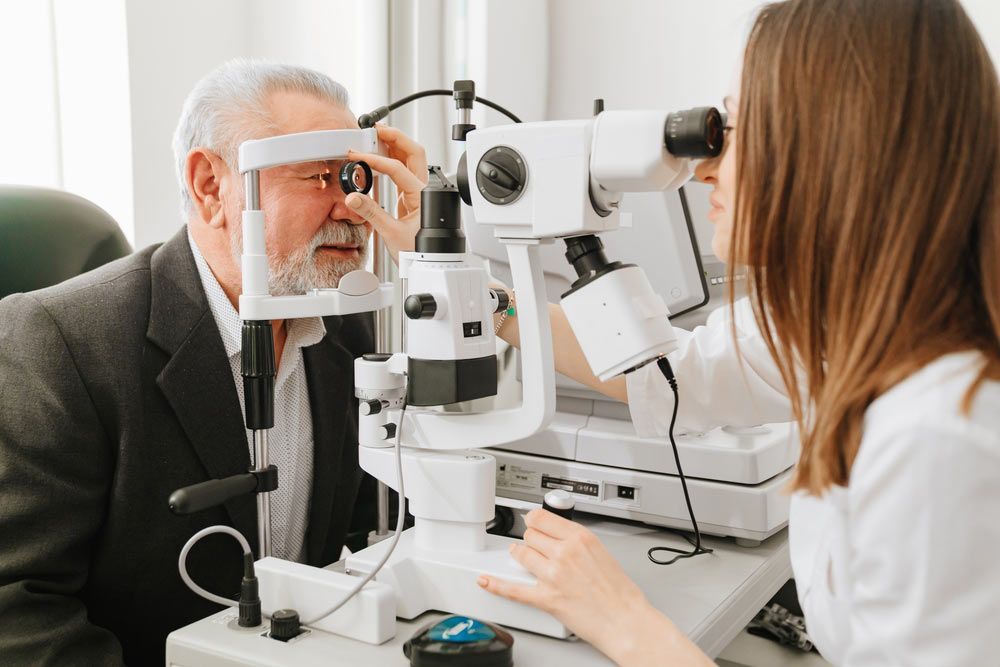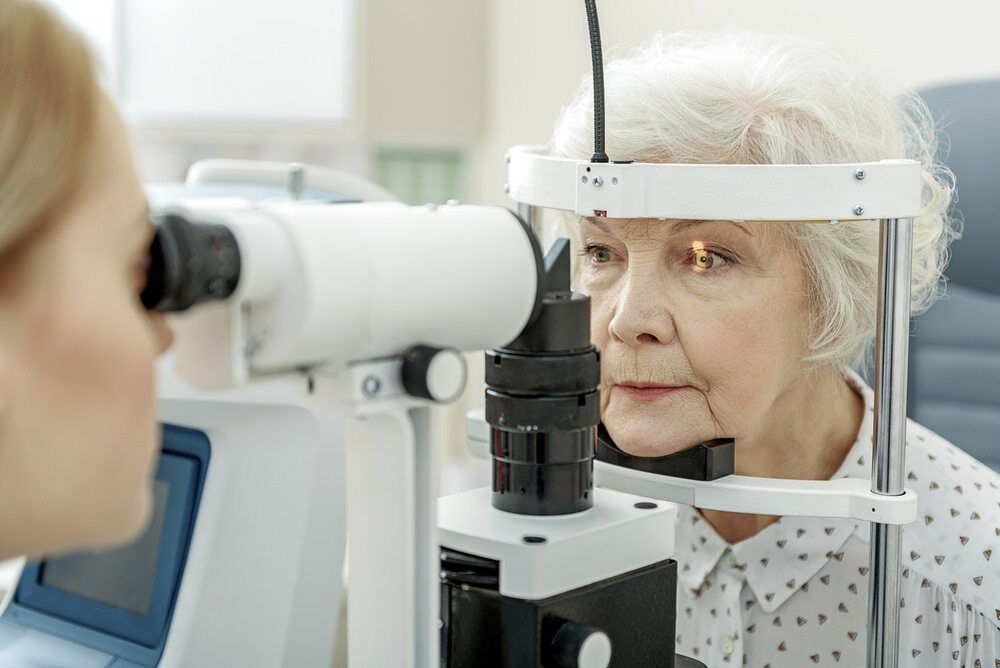When preparing for cataract surgery, it is crucial to have a clear understanding of the procedure, the risks and the expected outcomes. A cataract surgeon plays a key role in guiding you through this process, ensuring that you are informed and confident in your decision. One way to ensure you are making the best choice is by asking the right questions during your consultation. Below are some of the top questions you should ask your cataract surgeon to help you navigate your journey to clearer vision.
1. What Is the Overall Success Rate of Cataract Surgery?
Understanding the success rate of cataract surgery can help you set realistic expectations for the procedure. While cataract surgery is one of the most commonly performed and safest surgeries, the success rate can vary depending on several factors, such as the surgeon’s experience, your age, overall eye health and any pre-existing conditions. Ask your cataract surgeon about their personal success rate, as well as the rate for complications, to get a better understanding of what you can expect.
2. Am I a Good Candidate for Cataract Surgery?
Not all patients are suitable candidates for cataract surgery. Some may have additional eye conditions that could affect the outcome, such as glaucoma, diabetic retinopathy or macular degeneration. Age-related macular degeneration, for instance, affects approximately one in every 200 people over the age of 60, as noted by the Macular Society. If you have any of these conditions, it's essential to discuss them with your cataract surgeon to determine how they may impact your surgery and post-surgical recovery.
Your cataract surgeon will conduct an eye exam to assess the severity of your cataracts and any other eye conditions. They will also evaluate your general health to ensure that you are well enough for surgery. This conversation is crucial in helping you understand whether cataract surgery is the right choice for you.
3. What Type of Intraocular Lens (IOL) Do You
Recommend?
After the cataract is removed, your cataract surgeon will need to implant an intraocular lens (IOL) to restore your vision. There are different types of IOLs available, each with unique benefits and limitations. Some IOLs are designed to correct for astigmatism or presbyopia, while others may only address nearsightedness or farsightedness.
It’s important to ask your
cataract surgeon which type of IOL they recommend for your specific situation. This decision will depend on your lifestyle, your vision needs and your overall eye health. For example, if you lead an active lifestyle or spend a lot of time reading, you may want to consider a multifocal or accommodative IOL that can provide clearer vision at multiple distances.
4. What Are the Potential Risks and Complications?
While cataract surgery is generally safe, like any surgical procedure, it carries some risks. Potential complications may include infection, bleeding, retinal detachment or an increase in intraocular pressure. Your cataract surgeon should explain the risks in detail and discuss how they plan to minimise them during surgery.
It is also important to understand the potential for vision changes following the surgery. Some patients experience a clouding of the lens capsule, known as posterior capsular opacification (PCO), which can cause blurry vision months or years after the surgery. Your surgeon should explain the likelihood of this occurrence and how it can be treated if it happens.
5. How Long Will the Recovery Take, and What Can I
Expect During the Healing Process?
Recovery time following cataract surgery varies from person to person. However, most patients can expect to return to normal activities within a few days to a week. It’s essential to ask your cataract surgeon about the expected recovery timeline and any specific instructions you need to follow. These may include using prescribed eye drops to prevent infection or inflammation, avoiding strenuous activities and protecting your eyes from bright lights or dust.
Your cataract surgeon should also advise you on the signs of complications to watch out for during recovery, such as increased pain, redness or changes in vision. Understanding the healing process will help you make any necessary adjustments to your lifestyle and ensure a smooth recovery.
6. Will I Need Glasses After Surgery?
One of the most common questions patients have before cataract surgery is whether they will still need glasses after the procedure. The answer largely depends on the type of IOL used and your specific vision needs. Some patients may experience near-perfect vision without glasses, especially if they choose a premium IOL. Others may need reading glasses or glasses for distance vision, particularly if they have presbyopia or significant astigmatism.
Discussing your expectations and needs with your cataract surgeon will help you determine the best course of action. If you have a strong preference for wearing glasses or are looking for a solution to eliminate them, your surgeon can recommend IOL options that best align with your lifestyle.
7. How Experienced Are You in Performing Cataract
Surgery?
The experience of your cataract surgeon is an important factor in ensuring a positive outcome. Cataract surgery is a highly skilled procedure, and a surgeon’s experience can impact the quality of the surgery and the recovery process. Ask about the number of cataract surgeries the surgeon performs each year, as well as their level of expertise with different types of IOLs or complex cases.
It’s also helpful to ask if the surgeon has experience handling patients with specific conditions, such as age-related macular degeneration or glaucoma, as these may require specialised techniques. A well-experienced cataract surgeon can help you feel more at ease with the procedure and confident in their ability to manage any complications that may arise.
8. What Should I Do to Prepare for Surgery?
Preparation for cataract surgery involves several important steps, from arranging transportation on the day of the surgery to stopping certain medications. Your cataract surgeon will provide specific instructions tailored to your health and the type of surgery planned. These instructions may include fasting for several hours before the procedure, avoiding certain medications and making arrangements for someone to take you home after surgery.
Additionally, it’s essential to ask your surgeon if there are any lifestyle adjustments you should make before the surgery, such as avoiding activities that could strain your eyes or exacerbate existing conditions. Proper preparation can help ensure a smoother procedure and a quicker recovery.
9. What Is the Cost of Cataract Surgery, and Will My
Insurance Cover It?
Cataract surgery costs can vary depending on your location, the surgeon’s fees, the type of IOL used and your insurance coverage. Some health insurance plans may cover the cost of standard cataract surgery, while you may need to pay additional fees for premium IOLs or other specialised treatments. It's crucial to discuss the costs with your cataract surgeon’s office ahead of time to avoid any surprises.
Be sure to ask about payment options and whether your surgeon offers financing plans for out-of-pocket costs. Understanding the financial aspect of the surgery will help you make an informed decision and ensure there are no unexpected expenses.
10. What Are the Long-Term Results and Potential Need for
Follow-Up Procedures?
Cataract surgery typically offers long-lasting results, but it’s important to discuss the long-term outlook with your surgeon. Some patients may require additional treatments or procedures if complications arise. For example, if posterior capsular opacification (PCO) occurs, a simple laser procedure may be necessary to restore clarity to the vision.
Ask your cataract surgeon about the expected longevity of the IOL and whether any follow-up treatments may be needed in the future. Understanding the long-term care involved will help you maintain your vision and stay on top of any potential issues that may arise.
Asking the right questions during your consultation with a cataract surgeon is an essential step in preparing for cataract surgery. By discussing your candidacy, the surgery details, risks, recovery and long-term care, you can make an informed decision and feel confident moving forward. Always remember that open communication with your surgeon is key to achieving the best possible outcome and regaining clear, vibrant vision. For more information or to get started with our services, get in touch with 130 Eye today.
Eye Problems
Operating Hours
- Monday
- -
- Tuesday
- -
- Wednesday
- -
- Thursday
- -
- Friday
- -
- Saturday
- Closed
- Sunday
- Closed
Get In Touch
All Rights Reserved | 130 Eye


